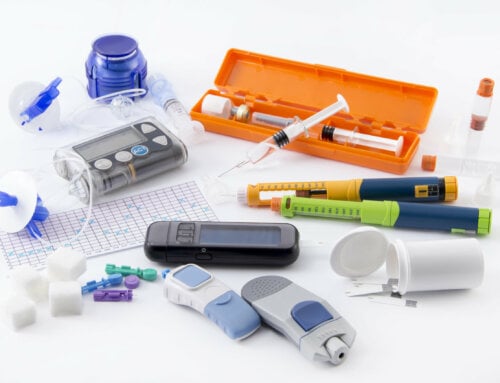During this week of diabetes educational sessions I have been answering some pertinent questions coming from patients like you. You may have read a version of this information before but each patient seems to put a different spin on the question. I am confident that you will all learn something new with each question which can only be a benefit to your overall diabetes care.
-
I still do not understand! I stop all eating by 8 P.M. since I heard that it is bad to eat at night and I test before I go to bed. I usually get a decent number in my target range of 80-120 mg/dl and feel empowered that I can skip my bedtime snack. I would actually enjoy something to eat but I am afraid and I am trying so hard to get my blood sugars under better control. Then I wake up and my fasting numbers are between 130-170 mg/dl! I know you would like to see my fasting value between 80-110 mg/dl so what am I doing wrong?
Answer – The body actually requires glucose or sugars all day and night long. If your body is not getting the glucose source from food (as in sleep) your body turns to glucose that is stored in the liver. Your insulin production from the pancreas will be less over night in a fasting state and it cannot keep up or match the glucose being pushed out by the liver. This can result in those increased fasting blood sugars. An easy remedy can be a bedtime snack that can actually lower the fasting morning reading. The most effective snack would be one that combines protein, healthy mono-unsaturated fat and a slowly absorbed carbohydrate. A simple but complete snack could be a slice of dense whole grain or stone ground bread with 2 teaspoons of peanut butter. That covers all the desired foods that can help with the blood sugar. Remember to count the snack in your overall daily carbohydrates as well as calories. An oral medication called Metformin can also help reduce the sugar churned out from the liver especially during the night. Some people cannot tolerate this medication due to GI upset or pre-existing kidney disease. If after trying the bedtime snack your fasting blood sugars do not enter target range talk to your physician; you may eventually need a medication change including a once daily long acting basal insulin shot.
-
I take a baby aspirin 81mg, cholesterol medicine and a blood pressure pill all in the morning when I wake up so that I will not forget them later in the day. Now I read that I should take them before bed, why?
Answer – Studies have showed us that the leading cause of death associated with diabetes is a heart attack or MI (myocardial infarction). Diabetes is not just a sugar problem so your physician must keep track of all your cardiac values to decrease MI and stroke risk and treat them accordingly. The reason to take these medications prior to bedtime makes sense. The greatest amounts of heart attacks are seen between 4-6 A.M. The blood pressure starts to rise at this time to get us ready for the day. It takes about 50% increase in blood circulation to get the system from sleep state to being awake. This sudden and increased pressure could cause a tear in the vessel lining creating a blood clot and heart attack. Our major vessels are also stiffer upon awakening like our joints and stay rigid in those early morning hours. This too can cause more plaque build-up and an eventual rupture. Taking the blood pressure medication before bed can help maintain a better and consistent reading in the early morning hours. Taking the cholesterol medicine prior to bed is necessary because the liver churns out cholesterol especially during the night. Taking the baby aspirin before bed can help reduce platelet sticking that also increases during those early morning hours. The stickier the platelets, the thicker the blood, which can result in blood clots causing a stroke or heart attack. Also consider taking a magnesium supplement (always check with your physician before starting a new supplement) of 500-1000mg before bed. You can get magnesium from green vegetables, nuts, legumes and whole grains but you may run short if you are not eating the proper amounts. Magnesium may help keep the vessels open and more relaxed which aids in lowering the blood pressure. It may prevent blood clots by reducing platelet sticking, decrease insulin resistance and help muscle and nerve function. People with kidney disease should not take added magnesium because they do not have the ability to excrete the excess. Magnesium loss can be accentuated when blood sugars are elevated since the increased urination that comes with high sugars can pull out magnesium; people with diabetes are often low in magnesium. Studies have shown that a decreased amount of magnesium may also increase the risk of peripheral neuropathy (a big complication of diabetes). Magnesium supplements can have a laxative response, so think about taking it in combination with calcium which makes it better tolerated.
These great questions offer insight into what others with diabetes often experience. Hopefully the answers can make you care for your diabetes in a more effective way!
NOTE: Consult your Doctor first to make sure my recommendations fit your special health needs.






I am getting much higher blood glucose readings taken when
fasting than later in the day, after eating. Is there a reason why this
would be??